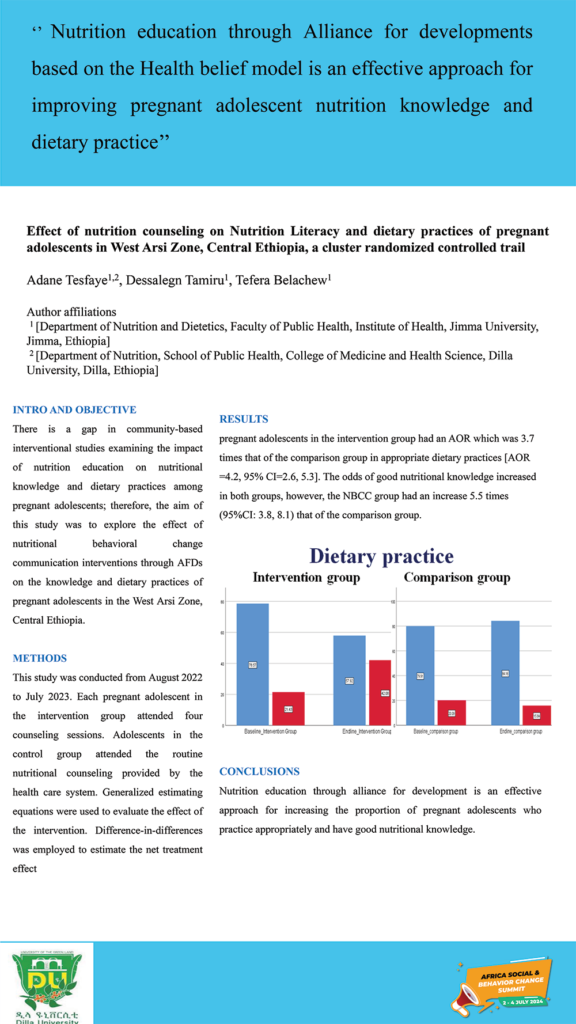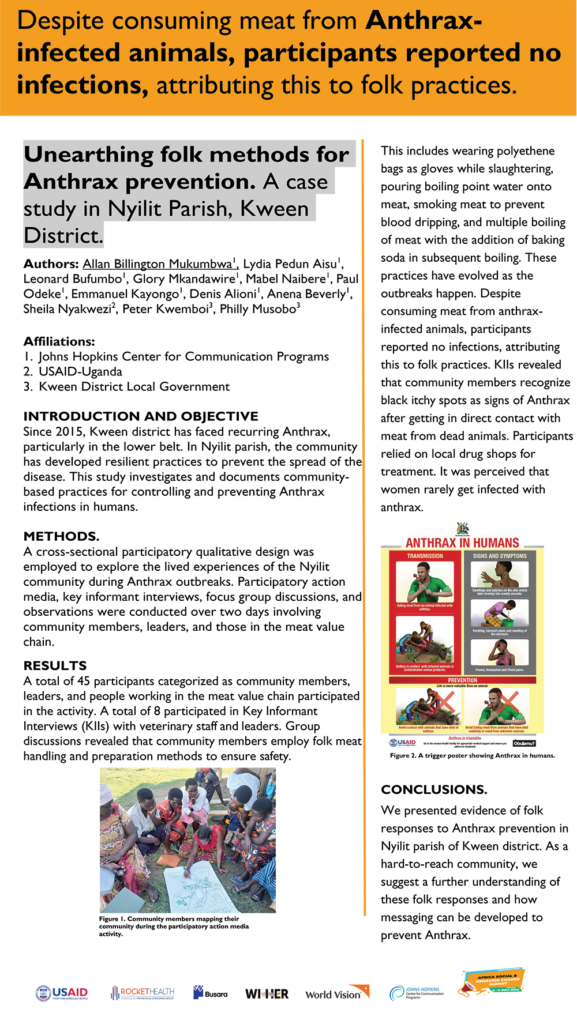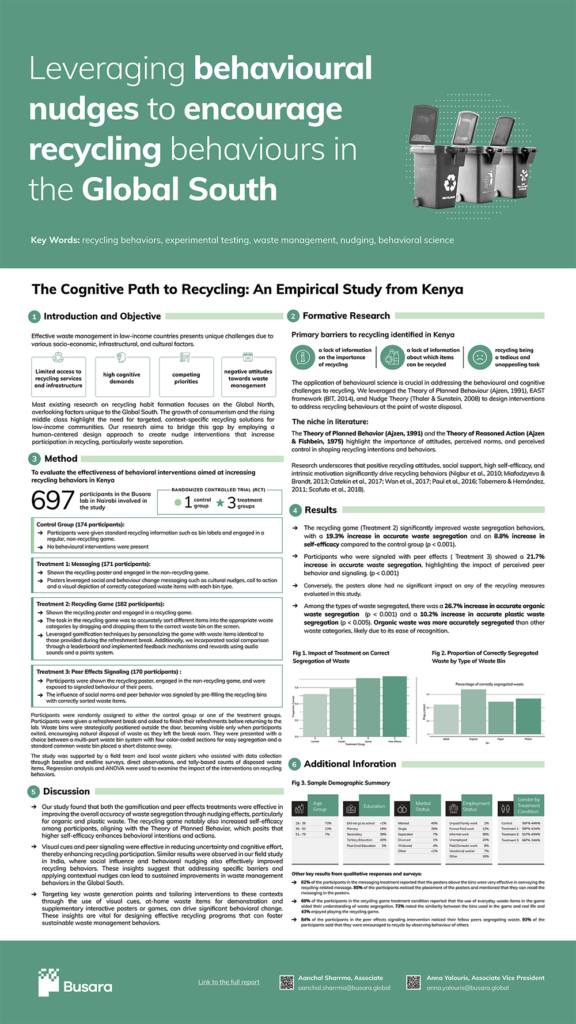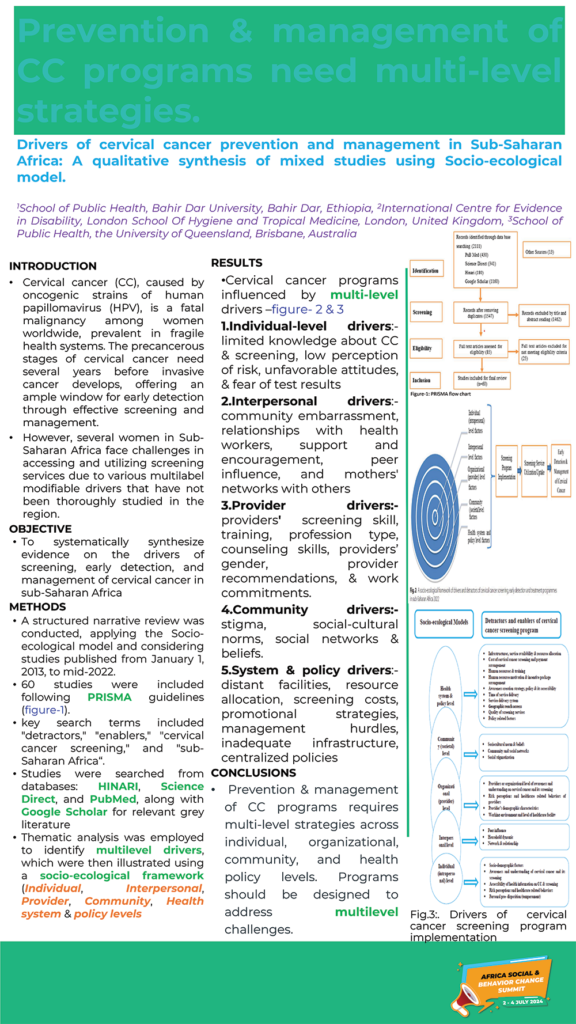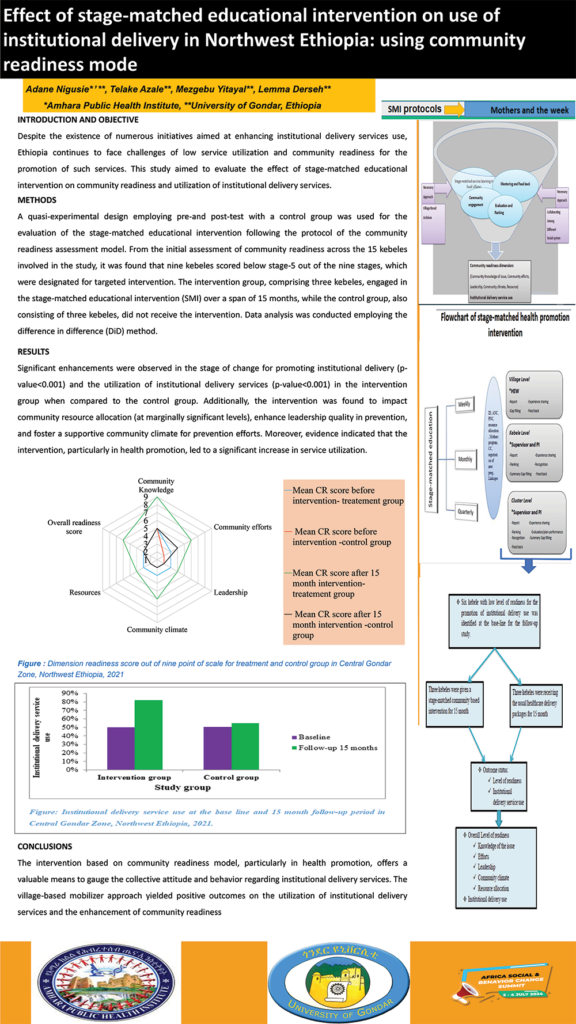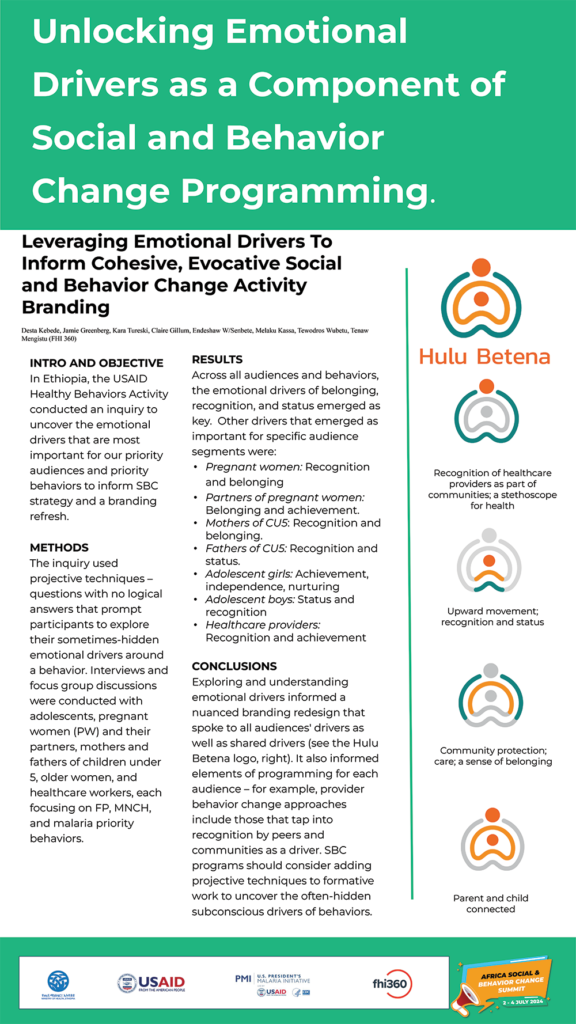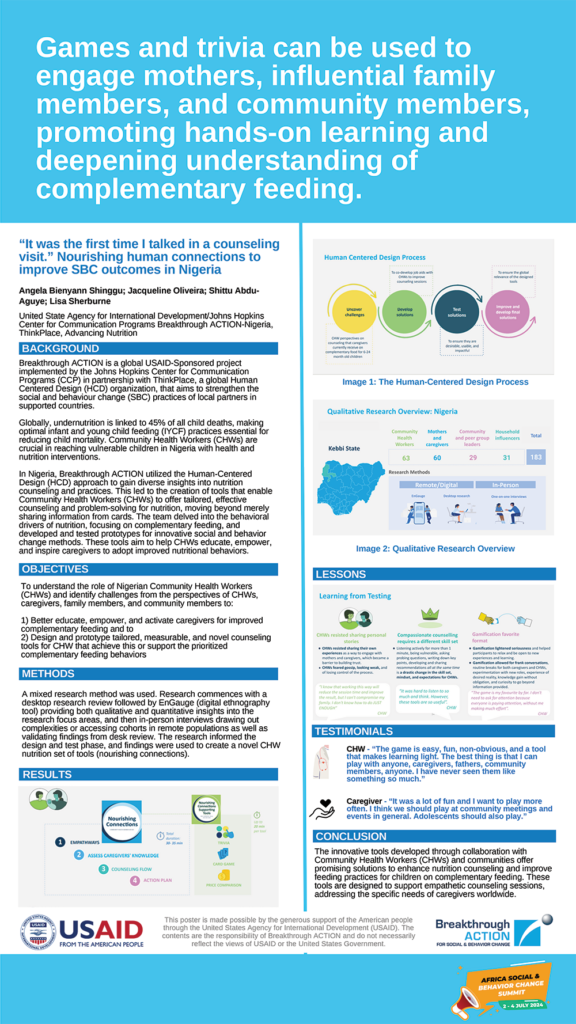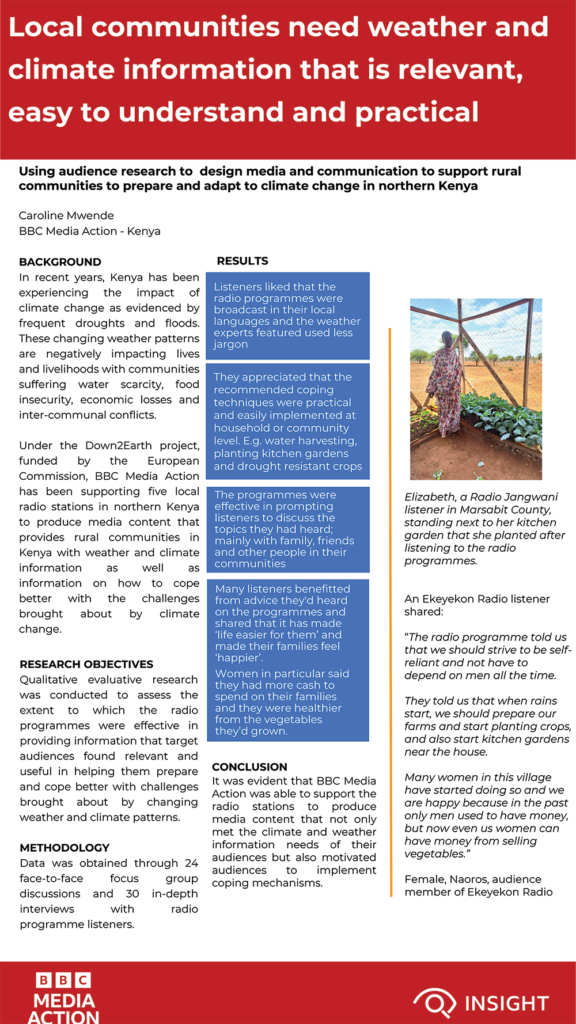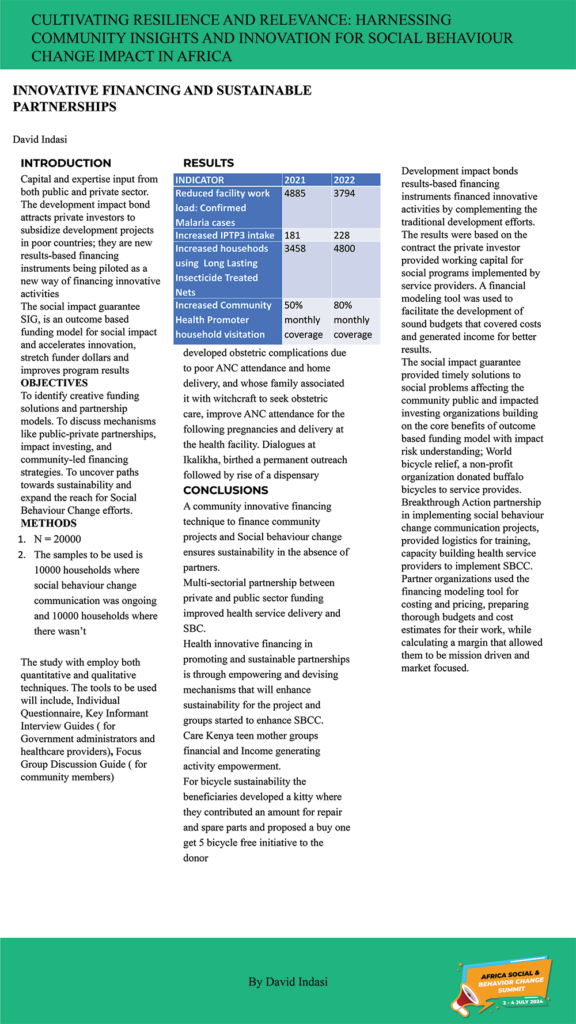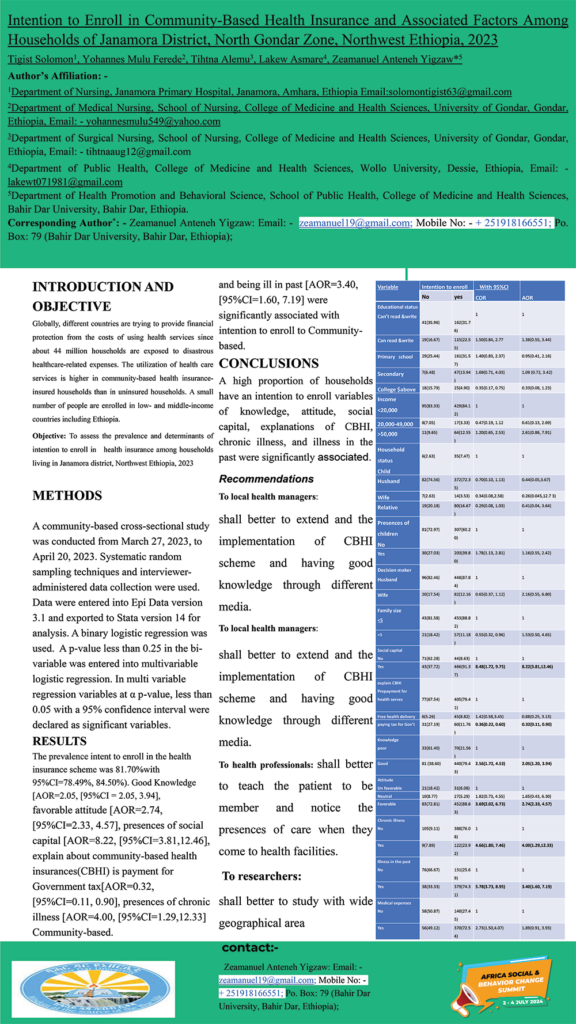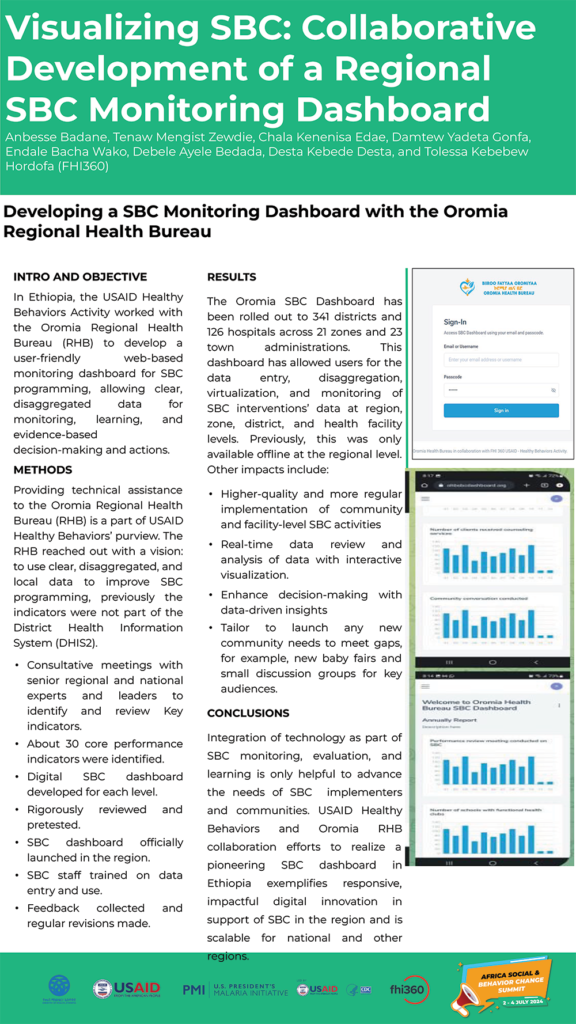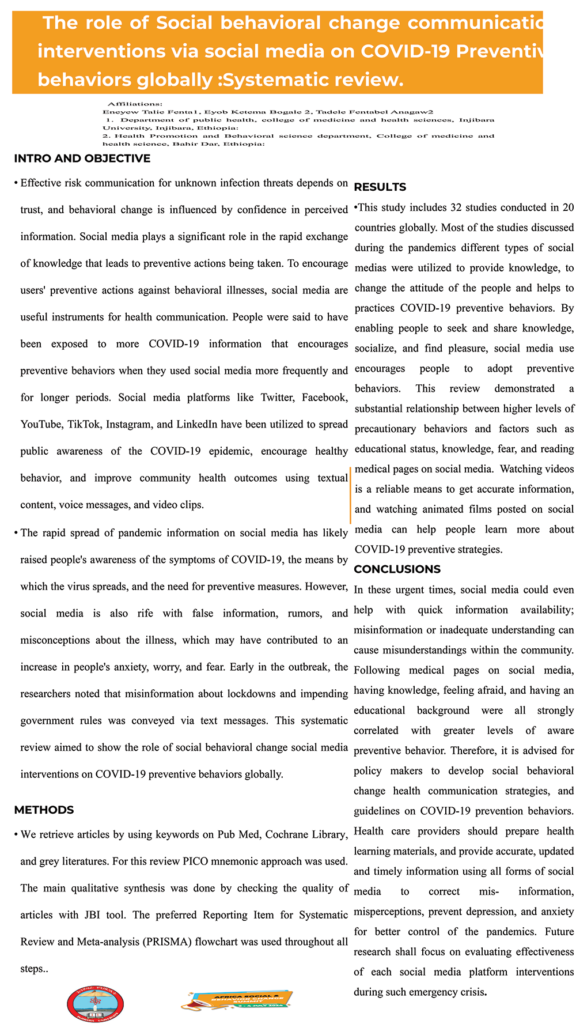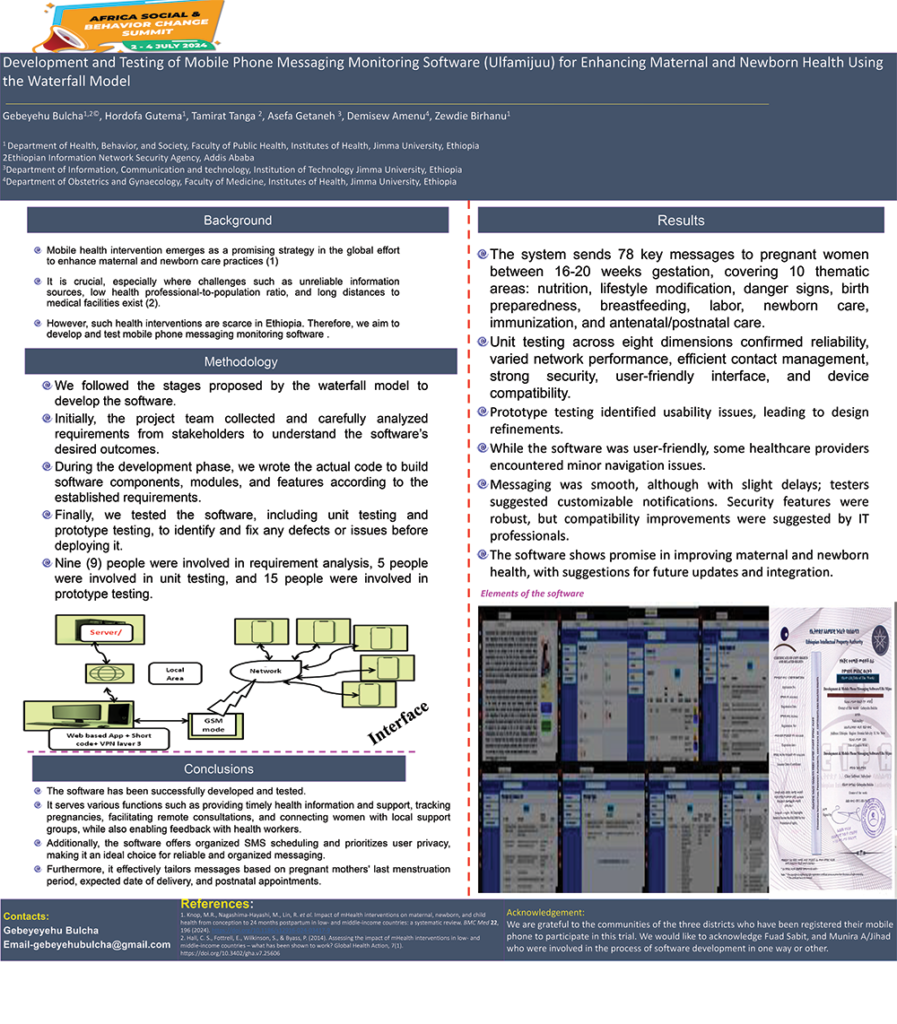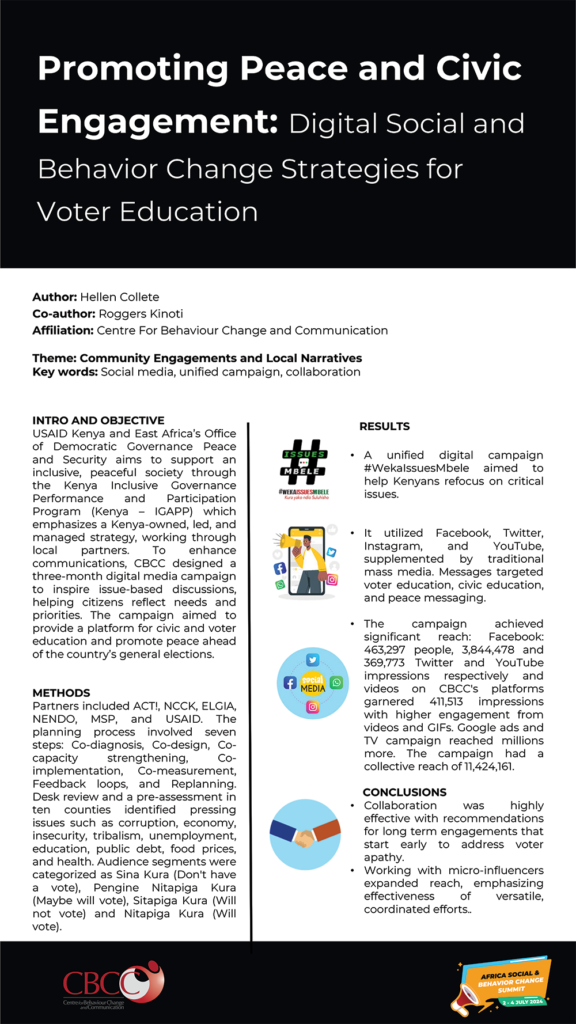Poster Presentations

Integrated Behavioral Science and Local Knowledge
This theme explores the convergence of behavioral sciences—including psychology, sociology, anthropology, and behavioral economics—and indigenous knowledge systems. It welcomes submissions that showcase the fusion of academic research with community wisdom to create evidence-based SBC practices that are deeply resonant within local cultures.
Community Engagement and Local Narratives
This theme emphasizes effective community programming, identifying and scaling local problem-solving, and using (e.g., digital) data for decision-making and social accountability. The theme also seeks abstracts that detail the process and impact of leveraging community narratives in SBC. Contributions should demonstrate how SBC initiatives, working with existing community structures, are informed by people’s lived experiences and aspirations.
Innovative Financing and Sustainable Partnerships
This theme focuses on identifying creative funding solutions and partnership models and invites discussions on mechanisms like public-private partnerships, impact investing, and community-led financing strategies. The goal is to uncover paths toward sustainability and expand the reach of SBC efforts.
Digital Transformation in SBC
This theme highlights the potential of digital innovations to revolutionize SBC and seeks insights into how technologies like mobile apps, social media, Artificial Intelligence (AI), and more are transforming the design and deployment of behavior change initiatives.

